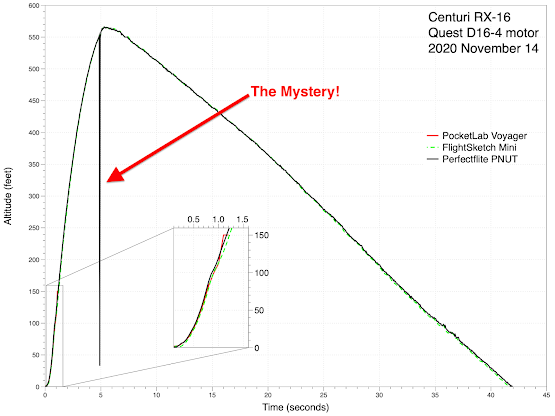 |
| Part of Saturday's NARCON schedule |
So, what were the highlights? Well, I loved the manufacturing forum announcing the forthcoming goodies and the two keynote talks (on Osiris-Rex and commercial spaceflight). There were excellent video tours of LOC Precision, Kennedy Space Center, and the rocket capital of the world, Estes Industries. Among the talks, there was an outstanding video presentation by James Duffy on kit bashing common kits into works of art, some great tips on making and using decals by Randy Gilbert, and how to use and care for common rocket altimeters by Bernard Cawley. Because of the packed schedule I missed several good presentations, and I will be looking at those over the coming days.
 |
| Alphas in WWII fighter livery (Click to enlarge). |
 |
| Estes Explorer Aquarius with tanks painted to resemble freight cars (Click to enlarge). |
And let's not forget Ed LaCroix's proposed logo for this year's NARCON...
Bernard's talk on altimeters solved a long standing mystery that has had me puzzled over several years. My altimeters often reported a sharp dip in altitude at ejection, indicating that the compartment with the altimeter was getting pressurized by the ejection charge. I figured it may have been due to too large vent holes in the payload section (altimeters need to sense the outside air to work properly, and vent holes are the easiest way to accomplish this). So I made my vent holes smaller, but the dip remained, showing up in flight after flight. I had resigned myself to living with it, but in his talk Bernard pointed out something that was so obvious I was kicking myself for not thinking of it.
Balsa is a very porous wood.
I use balsa couplers at the rear of my payload sections to connect them to the rest of the rocket, and so the ejection gases were flowing through the balsa into the compartment, spiking the pressure. The vent holes quickly allow the pressure to drop, but not before the altimeter records the spike as a sharp decrease in altitude. Simple, and you fix it by sealing the balsa - easiest way is to coat the coupler in wood glue. That will block the ejection gases. So I will soon start sealing the balsa couplers on my rocket payload sections, starting with the RX-16.
NARCONs are good - even old dogs like me learn a thing or two.


